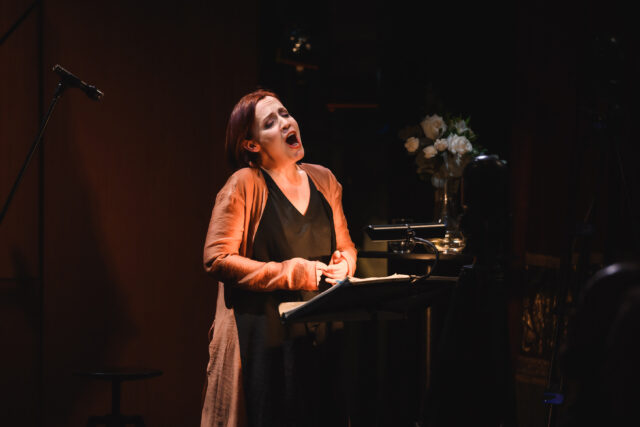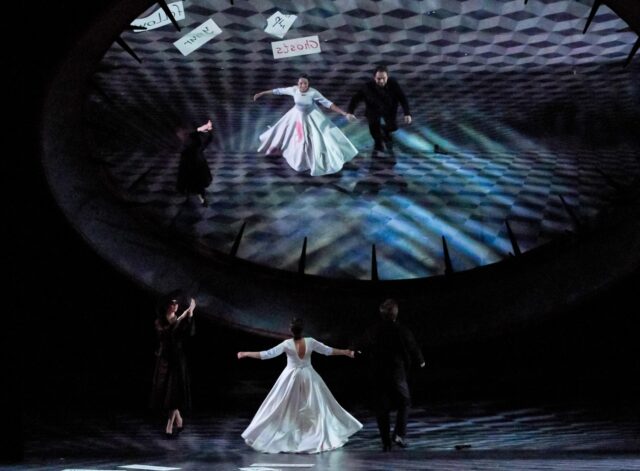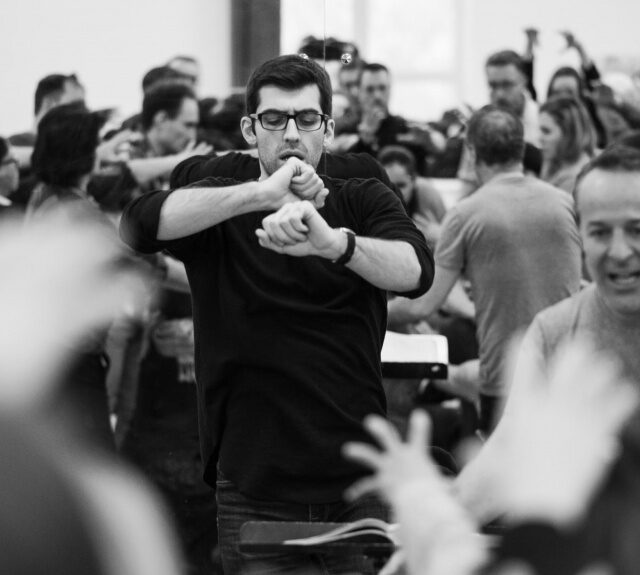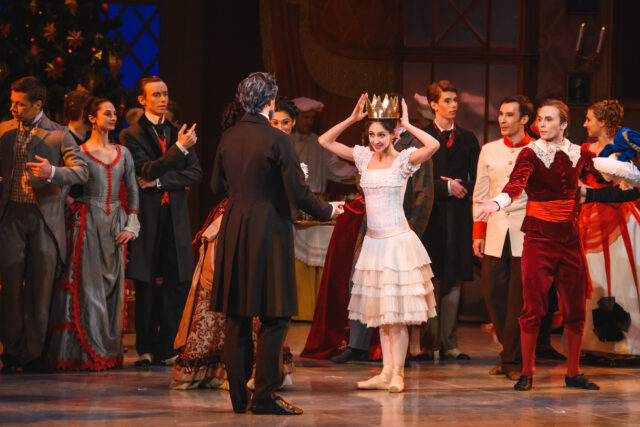Perm Opera became the third opera company – after the Latvian National Opera and the Mariinsky Theatre in St. Petersburg– to appear this year in Moscow and present two different performances. And it was the Perm company, under the baton of Teodor Currentzis, which received the loudest applause.
The theatre came armed with two different brands of opera – classical and modern. Modernity was represented by Pascal Dusapin’s work Medeamaterial (1992). Avant-garde European opera has not been performed in standard Russian theatres for almost 100 years, although you might expect a more complex score from a pupil of Iannis Xenakis. Its most interesting feature was the weaving of avant-garde techniques together with Baroque instrumentation – the work includes organ and harpsichord, and the strings play on gut strings tuned to A=415. The rest of the opera is a typical twentieth century production, its roots dating back to 1960, when the play was written by Heiner Müller. The catastrophic consciousness of the last century is reflected in the character Medea, who is destroyed by the past and the future. The German expressionist mono-opera style is heterogeneous, voraciously feeding off everything – from Baroque choral works to minimalism. The female soloist Nadine Koutcher deals masterfully with the variety, both as a singer and as a performer – the choir doubles her from the orchestra pit, and a dark spectacle unfolds around them, confidently staged by director Philip Grigoryan and choreographer Anna Abalikhina: it features a ballerina in red, a skeleton in a wardrobe, a cemetery swimming pool, martyrs, automatic rifles, a shower of blood, and the symbolic sacrifice of children.
Classicism, meanwhile, was represented by Mozart’s Cosi Fan Tutte. Who have we not heard perform this opera? The style of the Perm-based orchestra MusicAeterna was strikingly different from the rest, though. A fully authentic line-up, with period wind instruments (played by guest musicians from Europe) and even an archaic lute, cleansed Mozart of any later developments. The colours shone like an unvarnished painting, the overture and finale were played at an incredible tempo, without losing clarity, the piano was spellbinding, and the minutiae made the audience laugh. Currentzis feasted upon every page, one moment opera buffa, the next opera seria, and the accompanied recitative was almost impossible to tell apart from Monteverdi.
The fiery Simona Kermes (Fiordiligi) set the tone for the soloists, her temperament graciously highlighting Maria Forsström (Dorabella). Both built each other up wonderfully, and appeared high-minded against the backdrop of the amusing Anna Kasyan (Despina). Simone Alberghini (Guglielmo) and Garry Agadzhanyan (Don Alfonso) are excellent actors, but they sounded gruff, whilst Stanislav Leontiev (Ferrando) is rather limited theatrically, but has a captivating, versatile, and resonant tenor.
They all combined to deliver a refined performance, in which the director Matthias Remus almost entirely preserves the framework of the original – the fact that men discuss the faithfulness of their girlfriends in a brothel does it no harm at all. The artist Stephan Dietrich places the actors in halls filled with the changing light of Heinz Kasper, and dresses them in delicately styled costumes.
The subtle creative fantasy of the producer is hidden in the mise-en-scenes, filled with invention and shading. It does not aim for historical accuracy, but is instead a new theatrical milestone: previously the European norm was to combine musical authenticism with radicalism in staging (both considered anti-bourgeois ideas), whilst in the twenty-first century we should expect an increase in staged authenticity and set styles from the past. The Perm Theatre is one of the first to move in this direction.
Petr Pospelov



